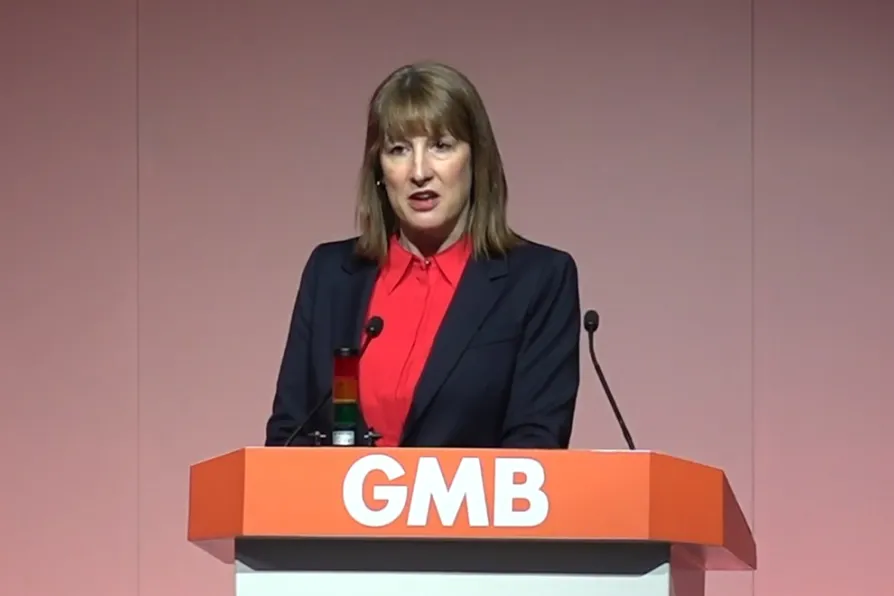
 Chancellor of the Exchequer Rachel Reeves making a keynote speech to the GMB Union Congress in Brighton, June 10, 2025
Chancellor of the Exchequer Rachel Reeves making a keynote speech to the GMB Union Congress in Brighton, June 10, 2025
CHANCELLOR Rachel Reeves will set out more than £30 billion funding for a ”new era of nuclear power” in her spending review on Wednesday.
Addressing GMB Congress today, she announced that £2.5bn will be invested to build the first of a fleet of Small Modular Reactors (SMR) by Rolls Royce in the East Midlands, supporting 3,000 jobs.
”The International Energy Agency estimates that the SMR market will be worth up to £500bn by 2050 — so if we want those jobs, we want that wealth, we want to lead the world, then we must act today,” she told delegates in Brighton.
Her announcement followed earlier confirmation that the Treasury will provide £14.2bn for Sizewell C nuclear plant in Suffolk.
”Taken together, tomorrow’s spending review sets out over £30bn of investment in Britain’s nuclear powered future,” she added.
Sizewell C is to produce 3.2 gigawatts of power — the equivalent for about six million homes — while Rolls Royce’s SMRs will provide about 470 megawatts each.
State-owned firm Great British Nuclear aims for 70 per cent of its future fleet to be made with home-grown content.
But government delays since Rolls Royce first submitted a design proposal in 2015 have already seen the company choose a non-British supplier for crucial pressure vessels.
In a Q&A with delegates, the Chancellor declined to give guarantees that her investments into defence and energy will prioritise British jobs and apprenticeships.
She said that her spending review will set out further reform of government procurement processes to help.
Ms Reeves also defended the government’s proposed welfare cuts after criticism from a GMB delegate.
Meanwhile, CND general secretary Sophie Bolt said: “The British people shouldn’t be shouldered with the huge costs of this dangerous, costly, and unsustainable energy source.
”Small Modular Reactors and the EPR (pressurised water reactor) design proposed for Sizewell C are either untested designs or plagued with problems, which will add further costs to customers.
”In reality, this has nothing to do with energy security and everything to do with building up Britain’s deadly nuclear weapons programme.
”The government must reverse this disastrous direction and instead channel investment into genuinely self-reliant renewables like wind, solar, and tidal energy.”










